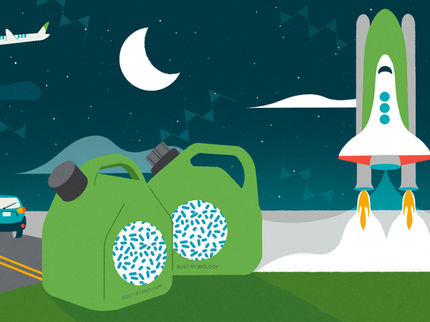Most biofuels are not 'green'
New data on the biofuel ecobalance
Advertisement
In recent years, the demand for supposedly environmentally friendly biofuels has increased significantly worldwide; on the one hand, this has resulted in the increased cultivation of so-called energy plants and, on the other hand, innovative production methods for the second generation of biofuels have been developed. Parallel to this, ecobalance experts have refined and developed methods for environmental assessment. Since biofuels stem predominantly from agricultural products, the, in part, controversial discussion about their environmental sustainability revolves principally around whether the production of biofuels is defensible from an ecological viewpoint or whether there are possible negative effects, for example on the supply of foodstuff in times of drought, or whether eutrophication of arable land occurs.
In order to be able to give a well-informed response, Empa, on behalf of the Department of Energy (BFA) and in collaboration with the research institute Agroscope Reckenholz-Tänikon (ART), and the Paul Scherrer Institute (PSI), has updated the ecobalance of numerous biofuels, including their production chains. Compared with the first worldwide ecobalance study of its kind in 2007, also carried out by Empa, the team, led by Empa researcher Rainer Zah, included both innovative energy plants and manufacturing processes and also updated assessment methods.
Fewer greenhouse gases – and thus a different environmental impact
However, despite a more extensive data set and up-to-date methods, Empa comes to the same conclusion as the study in 2007: many biofuels based on agricultural products indeed do help to reduce the emission of greenhouse gases, but lead to other environmental pollution, such as too much acid in the soil and polluted (over-fertilised) lakes and rivers. "Most biofuels therefore just deflect the environmental impact: fewer greenhouse gases, thus more growth-related pollution for land used for agriculture", says Zah. This results in only a few biofuels having an overall better ecobalance than petrol, especially biogas from residues and waste materials, which – depending on the source material – impact on the environment up to half as much as petrol. And within the biofuel group, ethanol-based fuels tend to have a better ecobalance than those with an oil base; however, the results are very much dependent on the individual method of manufacture and the technology.
New findings on the effect of biofuels on greenhouse gases
However, the new methodology also allowed Zah and his colleagues to highlight the "weaknesses" of the earlier study. The researchers in 2007 underestimated the effects of changes to natural areas on the greenhouse gas balance, for example the deforestation of the rain forest. The current study now shows that biofuels from deforested areas usually emit more greenhouse gases than fossil fuels. This also applies to indirect land usage changes if existing agricultural land is used for the first time for biofuel production and, as a consequence, forested areas have to be cleared in order to maintain the existing foodstuff or animal feed production.
On the other hand, positive effects can be achieved if energy plant cultivation increases the carbon content of the soil, for example via the cultivation of oil palms on unused grazing land in Columbia or via jatropha plantations in India and eastern Africa, making deserted land arable again. "Despite this, you can't speak in general terms of Jatropha as being a 'wonder plant', as its ecobalance is very much dependent on the agricultural practices at the site in question and the land's previous use", says Zah. Each (new) biofuel must therefore be examined separately and in detail.
What should be heeded in terms of biofuel production?
Although the devil is in the detail, the new studies make it possible to make some general recommendations:
- Clearing woodland and bush areas in order to develop energy plants is to be avoided; this worsens the greenhouse gas balance considerably, which has a distinctly greater impact on the environment.
- If agricultural land is used for biofuel production, indirect change of land use should be avoided as far as possible, for example, by making it compulsory to provide evidence that any displaced production does not have indirect effects as a result of intensification.
- The use of land and forestry residues such as straw, garden and timber waste for energy purposes is advantageous, but only if these are not used in other ways or if their extraction from their natural cycle does not reduce the fertility of the soil and the bio-diversity.



































































